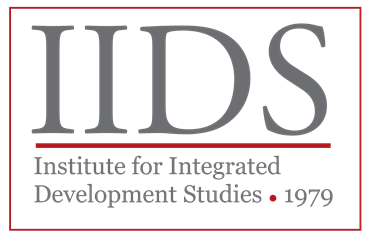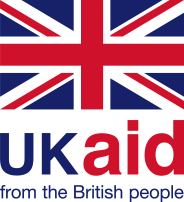Partnerships
WSP

WSP is a global professional services corporation that helps clients solve their most complex infrastructure and development challenges. As an internationally recognized multidisciplinary consulting firm, WSP provides technical and programme management expertise in infrastructure, governance, skills development, MSME development and public-private partnerships. WSP’s resource base of 49,900 employees and affiliate employees in more than 150 countries allows the company to provide clients with the technical resources of a leading global organization. WSP offers cutting-edge services that meet the demands of governments and private companies in the developed world, which have been successfully adapted to developing and transitioning national economies in Asia, Africa, Latin America and Eastern Europe. WSP’s overseas integrated development practice is a recognized partner to development banks, financial institutions, governments, NGOs and multilateral institutions around the globe.
WSP has more than 60 years of experience in the delivery of complex, multi-dimensional projects worldwide on behalf of UKaid and other donors. In conflict and post-conflict environments, Louis Berger has built a reputation for delivering high quality services, and for developing sustainable local institutions.
WSP offers expertise in a range of areas, including post-conflict development, community engagement, economic development, capacity building, government reform, infrastructure development, gender and vulnerable group integration, disaster response, and M&E. WSP is unrivalled in its ability to deliver development results in financial inclusion for the poor which encompasses a multitude of innovative approaches to provide financial services and products for the un- and under-banked.
WSP focuses on economic growth and poverty reduction in successfully applying a M4P approach and financial systems methodology to reduce market constraints and build the capacity of financial institutions and information systems. In doing so, we create accessible, efficient, and sustainable financial markets, empowering new market participants to escape poverty.
Its history in Nepal dates to 1995 where WSP worked with private clients and bilateral donors in Nepal’s central region. Currently WSP is implementing three different programmes in Nepal – Sakchyam Access to Finance Programme and Skills for Employment Programme, both of which are funded by the UK aid and Public Financial Management System Programme funded by USAID.
Frost & Sullivan

Frost & Sullivan is a business consulting firm established in the year 1961. For over five decades, it has been involved in market research and analysis, growth strategy consulting, and corporate training across multiple industries. In 1972, it started a corporate training division. Also, in the 1970s, the company started sponsoring conferences and industry meets, and expanded outside the US.
It is headquartered in Mountain View, California, and has offices in over 40 countries. The global research and consulting organisation is uniquely positioned to not only identify growth opportunities but to also to empower and inspire clients to create visionary growth strategies for their futures.
Clear Horizon


Clear Horizon is a young dynamic organisation founded in the year 2005. It specialises in training, monitoring and evaluation, facilitation and design. Leading in the programme evaluation space for years, it is known for partnering with organisations to design and implement human-centred and robust monitoring and evaluation approaches for simple -- through to even the most complex.
WSP is partnering with Clear Horizon and it is leading the development of the MEL Framework, including developing the theories of change, supporting investment decision making, value for money assessments including cost-benefit analysis, impact evaluations including randomised control trials, and more. Clear Horizon will implement an evaluation capacity building strategy to support national staff and partners to monitor, learn and continually improve on their delivery, as well as evaluate their projects at different stages (pilot and scale up).
Institute for Integrated Development Studies (IIDS)

Institute for Integrated Development Studies (IIDS) is a premier think tank of Nepal. This non-profit organisation was established in 1990 as a successor to the Integrated Development Systems which was established in 1979 with Kathmandu as it’s headquarter.
It aims to contribute to more informed public policy and action by conducting empirically based policy-oriented research on Nepal's economic and social development in national, regional and international contexts. It Fosters informed debate and discussion on key development issues facing the nation; Provides training and technical assistance for government and non-governmental agencies in areas of the Institute's expertise. It facilitates access to and exchange of knowledge and experience with institutions and concerned stakeholders within and outside the country.


